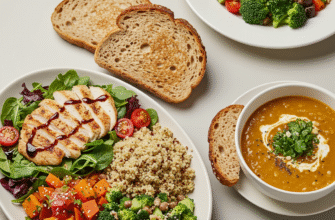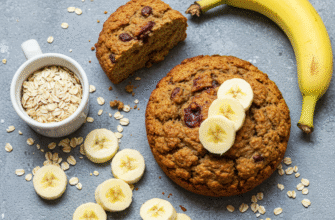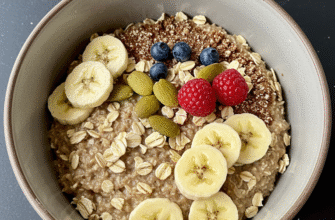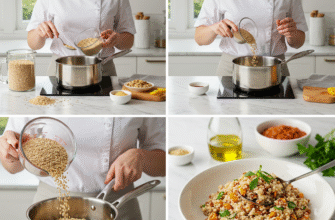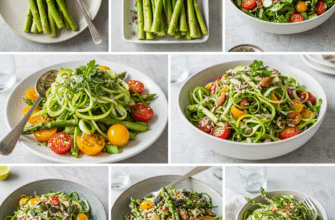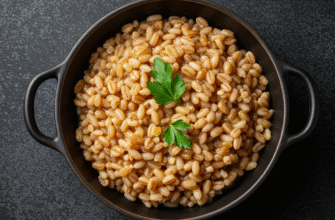Embarking on a journey towards a healthier lifestyle often feels like preparing for a sprint – intense, demanding, and ultimately, short-lived for many. We dive headfirst into strict diets and grueling workout routines, only to find ourselves back at square one weeks later, feeling defeated. But what if the secret wasn’t intensity, but consistency? Building a
sustainable healthy lifestyle is less about radical overhauls and more about weaving simple, manageable habits into the fabric of your daily life. It’s about playing the long game, focusing on progress, not perfection.
Think of it like building a sturdy house rather than a flimsy tent. You need a solid foundation and patient construction, not a rushed setup that collapses at the first sign of wind. This approach focuses on small, achievable steps that gradually become second nature, leading to lasting change without the burnout.
Small Steps, Big Impact
The allure of rapid transformation is strong, but sustainable change rarely happens overnight. Instead of trying to change everything at once, focus on incorporating one or two small adjustments at a time. Once those feel comfortable and automatic, you can add another. This gradual approach prevents overwhelm and builds confidence.
Hydration Made Easy
We all know water is important, but turning that knowledge into consistent action can be tricky. Forget complex hydration formulas for now. Start simple. Try keeping a reusable water bottle on your desk or in your bag – having it visible serves as a constant reminder. Maybe begin your day with a glass of water before your coffee or tea. Another trick is to drink a glass before each meal. These small triggers can significantly boost your daily water intake without feeling like a chore. The goal is simply to drink water more regularly throughout the day.
Movement, Not Just Marathon Training
The word “exercise” can conjure images of sweaty gyms and intense workouts, which can be intimidating. Reframe it as “movement.” Your body loves to move, and incorporating more activity doesn’t have to mean dedicated workout sessions, especially when you’re starting out. Look for opportunities in your existing routine. Take the stairs instead of the elevator. Park a little further away from the entrance. Get up and walk around for a few minutes every hour if you have a desk job. Have a walking meeting instead of sitting in a conference room. Go for a short walk during your lunch break. These little bursts of activity add up significantly over the course of a day and week, contributing to better energy levels and overall well-being.
Regular physical activity is well-established as beneficial for overall well-being. Even moderate movement accumulated throughout the day contributes positively. Consistency is often more impactful for long-term health than infrequent intense bursts. Finding activities you genuinely enjoy can greatly increase the likelihood of sticking with them.
Mindful Eating Habits
Diet culture often imposes rigid rules and restrictions, leading to cycles of deprivation and overindulgence. A sustainable approach focuses on awareness and balance rather than strict rules. It’s about building a healthier relationship with food, understanding your body’s signals, and making conscious choices most of the time.
Listen to Your Body’s Cues
How often do you eat while distracted – scrolling on your phone, watching TV, working at your desk? This often leads to mindless overeating because you’re not paying attention to your body’s signals of hunger and fullness. Try to eat more mindfully when you can. Slow down your eating pace. Chew your food thoroughly. Pay attention to the tastes and textures. Notice how your body feels – are you comfortably satisfied, or overly stuffed? Tuning into these internal cues is a skill that takes practice, but it’s fundamental to eating in a way that nourishes and satisfies you without needing external rules.
Plan Ahead (Just a Little)
You don’t need elaborate, Instagram-worthy meal prep sessions every Sunday, unless you enjoy that! Simple planning can make a huge difference. Think about your meals for the next day or two. What healthy options can you have readily available? This might mean chopping some extra vegetables when you’re making dinner to add to lunch the next day. It could mean keeping healthy snacks like fruit, nuts, or yogurt visible and accessible, so you’re less likely to reach for convenience foods when hunger strikes. Even a loose plan helps prevent those moments where you’re starving and grab the easiest, often less healthy, option available.
Prioritizing Rest and Recovery
A truly healthy lifestyle isn’t just about diet and exercise; it encompasses how you rest and manage stress. Neglecting these aspects can undermine even the best eating and movement habits. Your body and mind need time to recharge and repair.
The Underrated Power of Sleep
Sleep is often the first thing sacrificed when life gets busy, but it’s crucial for physical and mental health. Lack of adequate sleep can affect everything from your mood and concentration to your appetite hormones and immune system. Aim for consistency – try to go to bed and wake up around the same time each day, even on weekends, as much as possible. Create a relaxing pre-sleep routine to signal to your body that it’s time to wind down. This could involve reading a book, taking a warm bath, listening to calming music, or light stretching. Dim the lights and avoid screens (phones, tablets, TVs) for at least 30-60 minutes before bed, as the blue light can interfere with melatonin production, the hormone that regulates sleep.
Simple Stress Management Techniques
Chronic stress can take a significant toll on your health. Finding simple ways to manage everyday stress is key. This doesn’t require lengthy meditation retreats. Incorporate small moments of calm into your day. Practice deep breathing for a minute or two when you feel overwhelmed – inhale slowly through your nose, exhale slowly through your mouth. Take short breaks throughout the day to step away from your work or chores. Spend a few minutes in nature if possible, even if it’s just sitting near a window or looking at a plant. Engage in hobbies you enjoy that help you disconnect from stressors. Find what works for
you and practice it regularly.
Consistency Over Perfection
Perhaps the most crucial element of a sustainable healthy lifestyle is embracing consistency over perfection. There will be days when you eat cake, skip your walk, or stay up too late. That’s perfectly normal and human. The difference lies in how you respond.
Avoid the “all-or-nothing” trap. One less-than-ideal meal or missed workout doesn’t derail your progress unless you let it. Instead of thinking, “I’ve blown it, might as well give up,” simply acknowledge it and get back on track with your next meal or your next opportunity to move. Focus on the overall pattern, not isolated incidents. Progress is rarely linear; there will be ups and downs. Be kind to yourself, celebrate the small wins, and remember that consistency, even with imperfections, is what leads to lasting change. It’s about building habits that you can realistically maintain for the long haul, creating a foundation for a healthier, happier you, one simple step at a time.
“`



